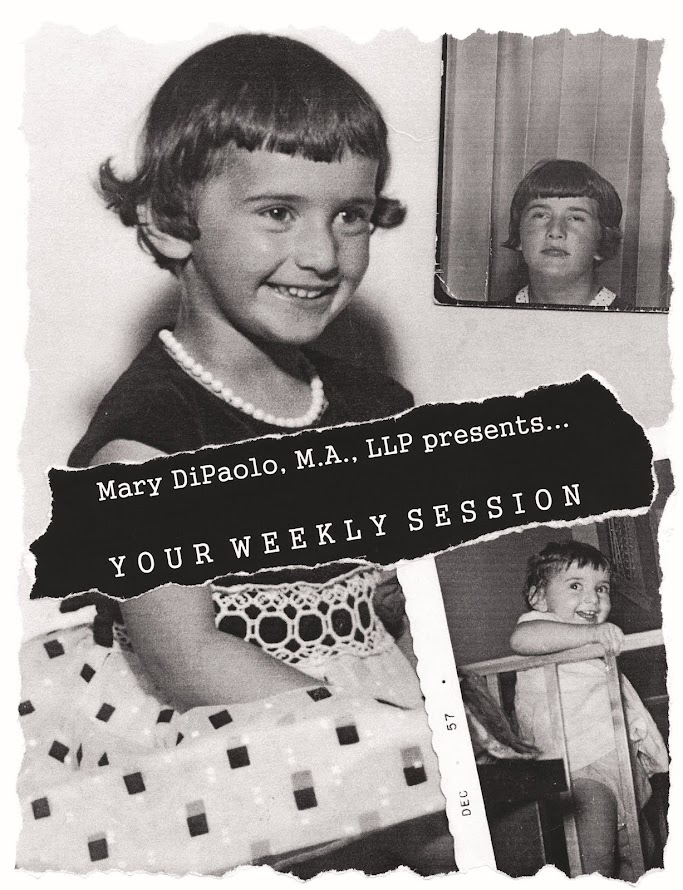I had a wall in my former office which was used for the express purpose of posting all the quotable quotes shared with me over the past several years. Some of these quotes came from clients; others from sources I had either read or heard of elsewhere. The most recent just came through an email sent to me earlier today.
Quotable quotes from the front have helped me to practice what I have preached both personally and professionally speaking. Here's hoping that sharing them with you now has a similar effect...
"Get up. Dress up. Show up."
"ACT! STOP! RELAX! THINK! (And you wonder why you have problems?!)"
"STOP! RELAX! THINK! ACT! (Now that's better!)"
"When nothing changes, nothing changes."
"He's been in a fog since Sherlock Holmes."
"We all teach others how to treat us."
"He who cares the least knows how to control the most."
"When the horse is dead, by all means get off!"
"Transmitting your pain onto other people is easy to do. Being transformed by your pain into a better person is not so easy to do."
"If he was any more immature, he'd still be in the womb."
"Denial is when you steal someone's wallet and then help them look for it later."
"Sex is like the icing on a cake. The cake is the emotional and spiritual intimacy you share."
"How is anybody else going to truly understand you if you don't even truly understand you?!"
"If everybody else owes you something, then what do you owe them?"
"Nobody learns how to comfortably serve others by becoming comfortable with being served by others."
"She's the master of the one-note song: ME ME ME ME ME!"
"Living in the past is like digging up your yard in search of buried treasure..when you live on a landfill!"
"Looking back at the past is o.k. when you have lessons there you need to learn and haven't yet."
"Worry is like a rocking chair; it gives you something to do but gets you nowhere."
"Untreated anxiety is like being buried alive at the same time you are desperately breathing through a paper straw."
"The only person you can change is you. The only person I can change is me."
"There is no true healing without true humility."
"Believing that substance use and abuse is a cure for anxiety is like trying to put out a raging fire with your own spit."
"Funny how what we are attracted to in the beginning is what we hate most by the time we split up."
"Love is the answer. But so is the truth. Together, they make the most beautiful music."
"When moments of true joy happen, there is always an element of surprise involved."
"Spirituality is like the wet part of the ocean."
"Laughter is good medicine. Try laughing more often. It works."
"Surrender is that small space between acceptance and change."
"She put the "hot" in Psyc-hot-ic!"
"Keep talking. I'm diagnosing you."
"FEAR = False Evidence Appearing Real."
"Not my monkeys. Not my zoo. Not my responsibility."
"Expectations are premeditated resentments."
"To lie is to say "I don't want to understand you..and I don't want to be understood by you either."
"Poor me...poor me....pour me another drink!"
"It's one thing to be in a crisis; it's a whole other thing to stay in it for 27 years!"
"Nobody becomes a better person because of their abuse; they become better people in spite of it!"
"Say what you mean, mean what you say, just don't say it mean."
"Codependency is when the round hole in your head perfectly fits with the square peg in his."
"I may live in hell, but at least I know the names of all the streets!"
"To be comfortably familiar with crisis, chaos,and mayhem is like wearing shoes two sizes too small.
They hurt like hell but you keep on walking everywhere in them anyway."
"There is a God; newsflash! You're not Him!"
"Learn to live in your present moments; it's the most important gift you have during these 24 hours."
"You won't heal what you won't recognize."
"Recognize...Repent...and Repair. The new three "Rs'" to remember always."
Happy Thanksgiving!
